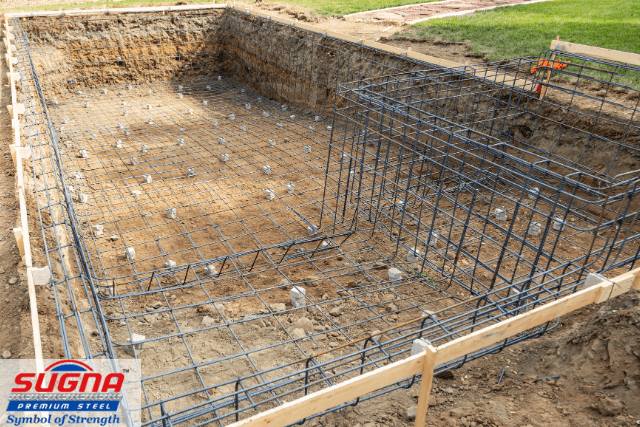Building a robust structure is a challenging task that involves meticulous planning, thoughtful design, and careful selection of materials. Among the various materials that form the backbone of a building, TMT bars (Thermo Mechanically Treated bars) play a pivotal role. These bars contribute significantly to the strength, longevity, and overall stability of structures.
As we delve deeper into this topic, you’ll discover why TMT bars are the unsung heroes of modern architecture.
Understanding TMT Bars
TMT bars, also known as reinforcement bars, are high-strength steel bars extensively used in construction. They have a robust outer layer and a softer core, an ideal combination for withstanding high levels of stress. These bars derive their name from the Thermo Mechanical Treatment which involves a three-stage process: quenching, self-tempering, and atmospheric cooling.
The end product? An impressive bar with high yield strength, excellent ductility, superior weldability, and better corrosion resistance. Now, let’s unpack how these unique characteristics of TMT bars contribute to reinforcing foundations and strengthening structures.
TMT Bars: Reinforcing Foundations

High Yield Strength
TMT bars are characterized by high yield strength, enabling them to bear considerable loads without deforming. This strength is an integral quality required in construction materials, particularly those responsible for maintaining the integrity of the structure’s foundation. By resisting external pressures, TMT bars prevent structural deformities, ensuring long-lasting durability.
Ductility
A defining characteristic of TMT bars is their exceptional ductility. Ductility refers to the material’s capacity to undergo significant plastic deformation before breaking or failing. TMT bars’ high ductility makes them flexible, which allows them to bend without breaking, a trait incredibly beneficial in regions prone to earthquakes. Structures reinforced with these ductile bars can withstand seismic activities, protecting lives and properties.
Superior Weldability
Weldability is a crucial attribute of materials used in construction. TMT bars exhibit superior weldability, allowing them to be seamlessly integrated with other structural components. Weldability ensures secure joints and connections within the structure, contributing to overall stability and safety.
Corrosion Resistance
Corrosion is a common issue that weakens structures over time. TMT bars are designed to resist corrosion, thereby increasing the life expectancy of the building. This resistance to corrosion reduces maintenance costs, making TMT bars a cost-effective option in the long run.
The Impact of TMT Bars on Sustainable Construction
TMT bars have made a notable contribution to sustainable construction. Their high strength-to-weight ratio means that less material is needed to achieve the same structural strength, reducing the overall carbon footprint. The longevity and reduced maintenance requirements of TMT bars further make them an environmentally friendly choice.
Hire Experts like Sugna TMT
When it comes to reinforcing your structures with TMT bars, expertise and quality should be your guiding factors. That’s where professionals like Sugna TMT come into the picture. As a leading manufacturer and supplier of TMT bars, Sugna TMT is renowned for its superior quality products and its commitment to customer satisfaction.
Conclusion
The strength of any structure lies in its foundation, and TMT bars play an essential role in reinforcing this foundation. With their high yield strength, excellent ductility, superior weldability, and corrosion resistance, TMT bars have become the backbone of modern construction. They not only ensure the safety and durability of structures but also contribute to sustainable and cost-effective construction. So, the next time you see a building standing tall and strong, remember the critical role played by these reinforcement bars in achieving that feat.

